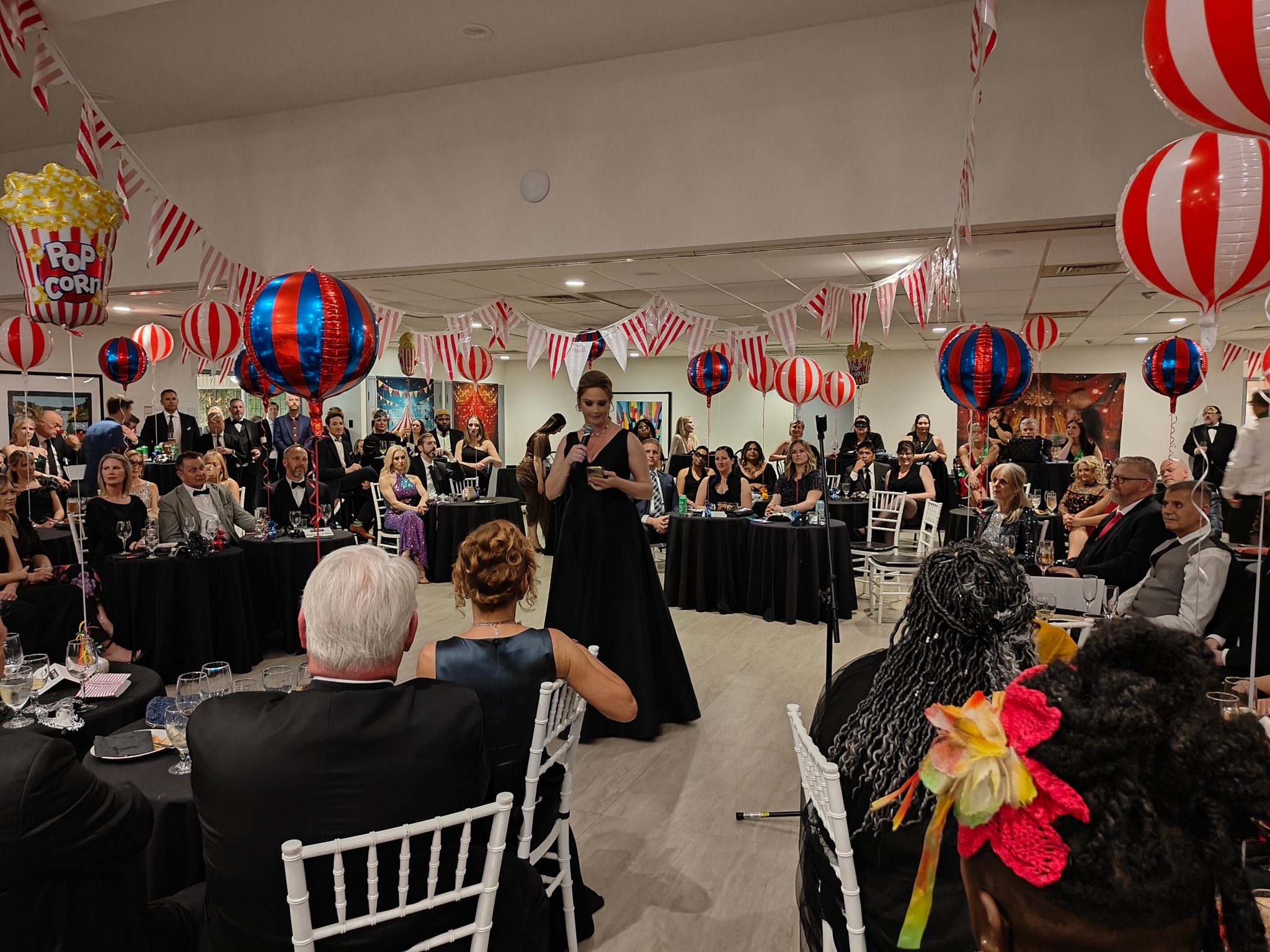Burlington and Hamilton residents donned masks and fancy togs for a good cause at the Art Gallery of Burlington (AGB) on May 4. Hosted by the Other Bird restaurant group to raise funds for the Canadian Mental Health Association Hamilton (CMHA), this year’s iteration of Masquerade had a theme of Circus, Circus.
Dancers from Burlington’s Canadian Dance Company provided elegant entertainment, with brief dance interludes around the venue, as well as a performance during the main event.
Griselda, a wandering opera singer and entertainer (and alter-ego of Alexa Dunham) kept party-goers in the spirit of the evening, alongside Arieze Kanji, the Colourblind Magician, and Scarlet Black, who performed with hula hoops and faux-fire sticks.
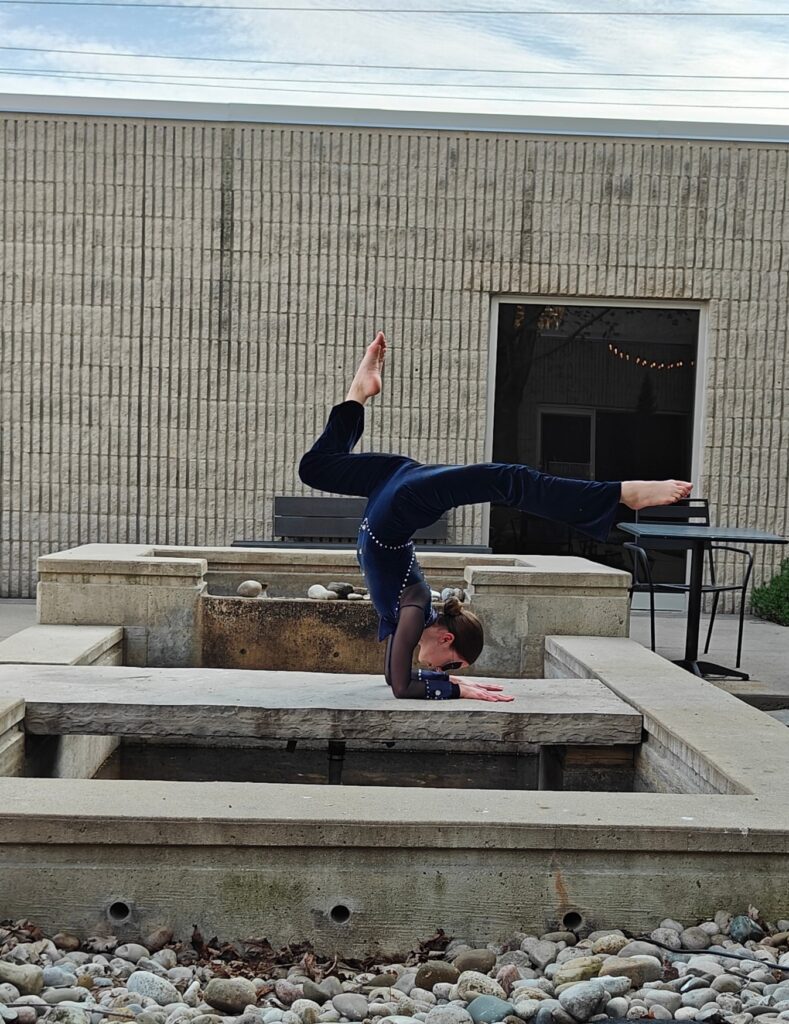



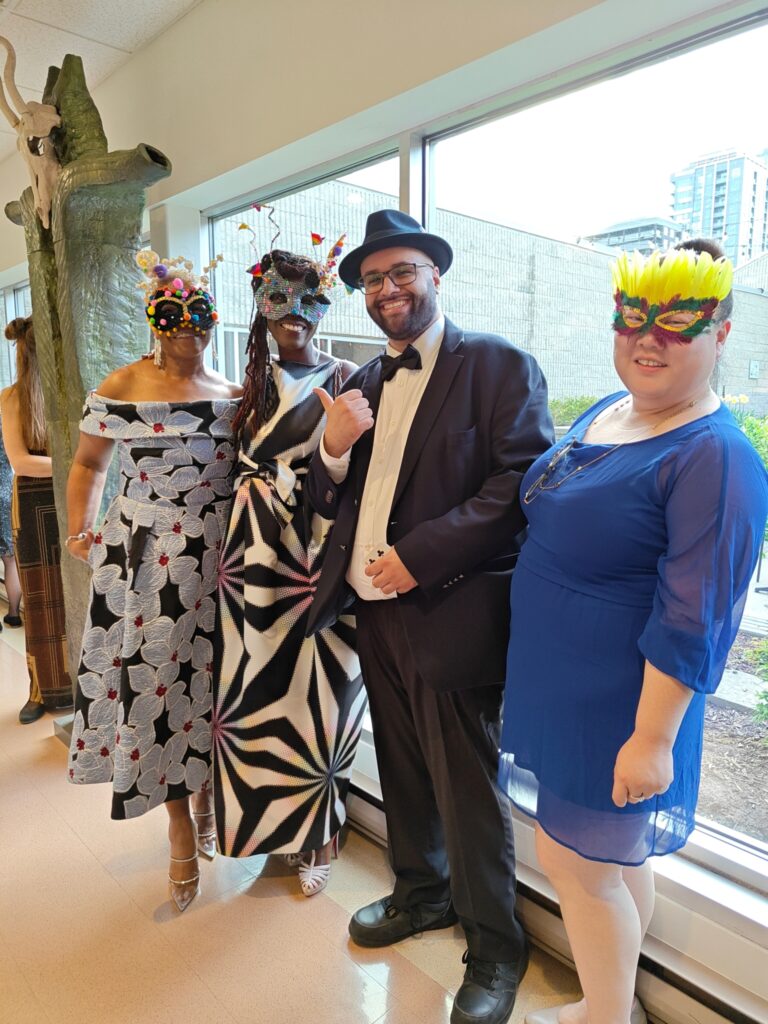
A silent auction featuring art by area artists was displayed in the AGB’s hallways, curated by Rafal Tomczuk; artists donated their work for the benefit of CMHA, including Kareem-Anthony Ferreira, Melanie MacDonald, Tania LaCaria, Tom Wilson, and more, some of whom attended the event. Event sponsors included CGS Architects, Dynamis Capital Partners, Velolaw, and PV & V Insurance.
Lohifa Pogoson Acker brought the energy as the evening’s emcee, and Frances Fripp presided over the live auction. Amongst the live auction packages were weekends away, a golfing and open bar afternoon, and a portrait of the winning bidder to be painted by Alexa Dunham, which will then find a home on the walls of Rapscallion, one of the Other Bird’s Hamilton restaurants. Much excitement came with the bidding for the package offered by the Other Bird’s Executive Chef Matthew Kershaw — a private dinner for 10 people cooked by Kershaw at the winning bidder’s home. A bidding war ended in a request for Kershaw to take on two such dinners, each with a $6000 bid; much applause followed after he agreed, marking $12,000 in the pot for CMHA.
Erin Dunham, CEO and founder of the Other Bird, provided the keynote address for the evening, speaking about hey own experiences with chronic, severe mental health challenges.
For Dunham, it started early. She experienced her first panic attack at the age of 5.
Anxiety and depression marked(marred??) her early years. She self-medicated to try to relieve some of the pain. (“I was a fun teenager,” Dunham said self-deprecatingly.)
After a prescription of anti-depressants sent her into a period of mania, she was diagnosed with bipolar I disorder (mania is a common result of anti-depressants for people with bipolar I, Dunham noted).
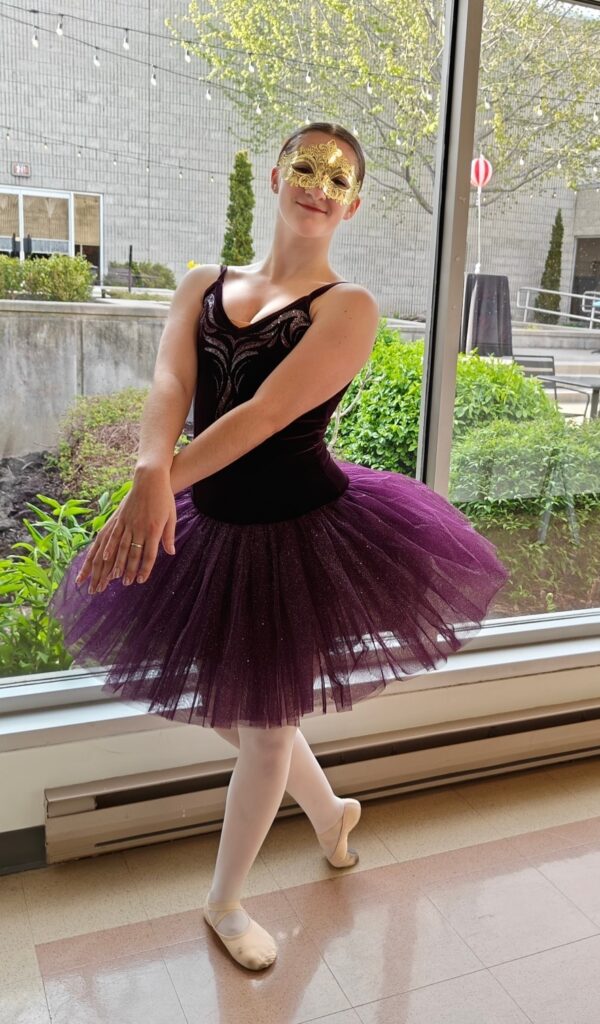
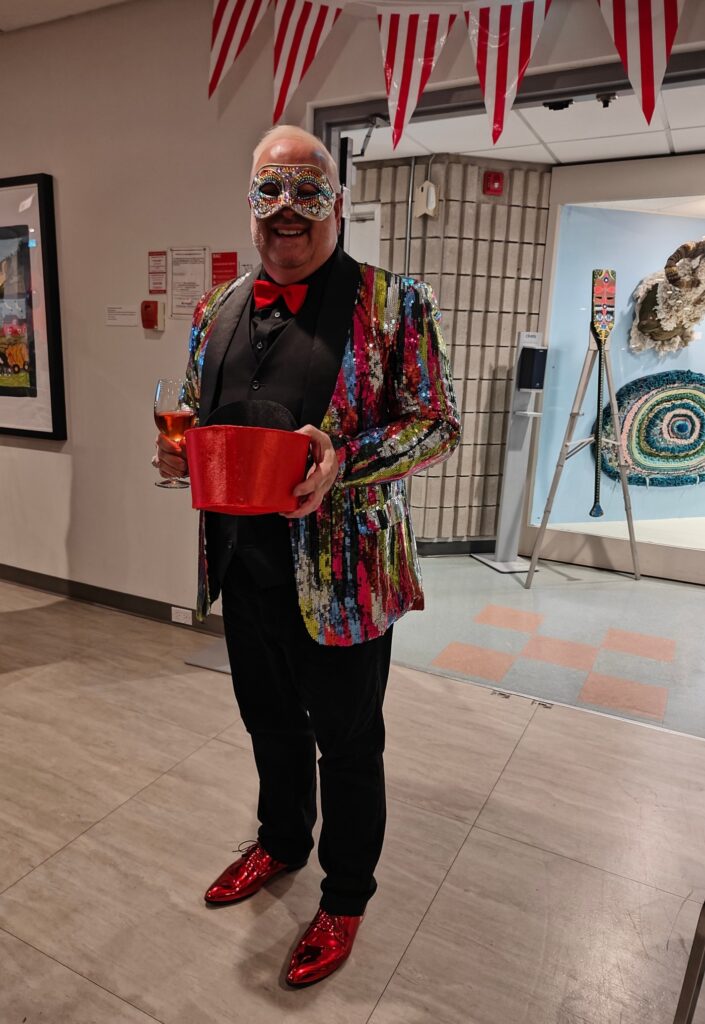
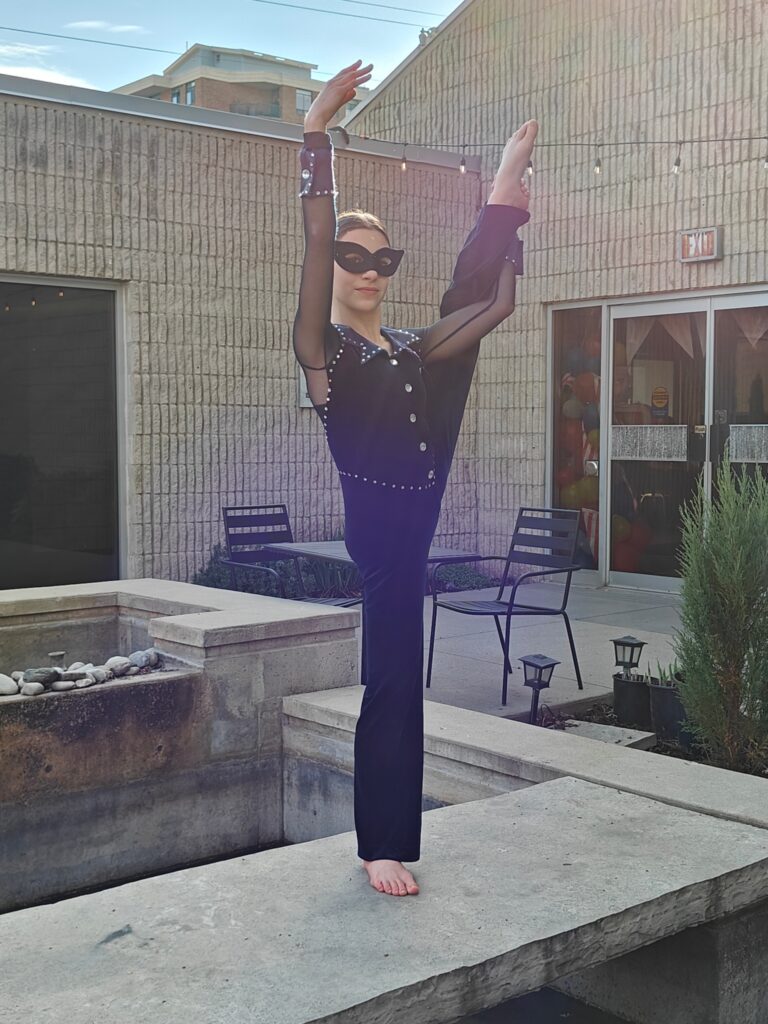

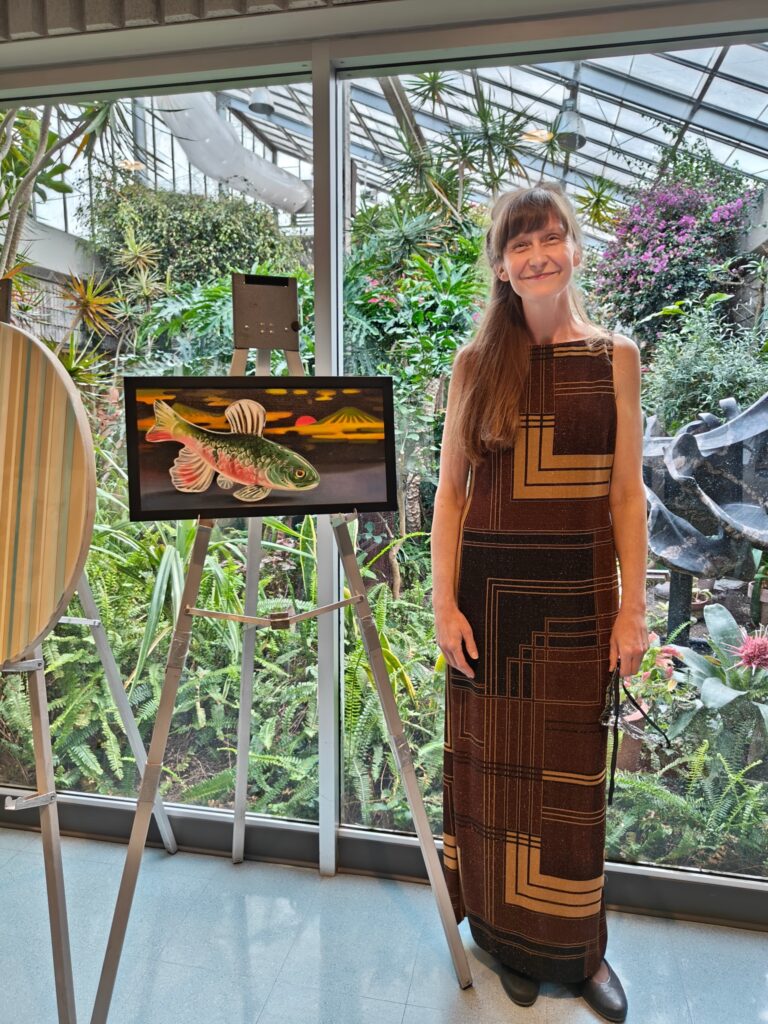

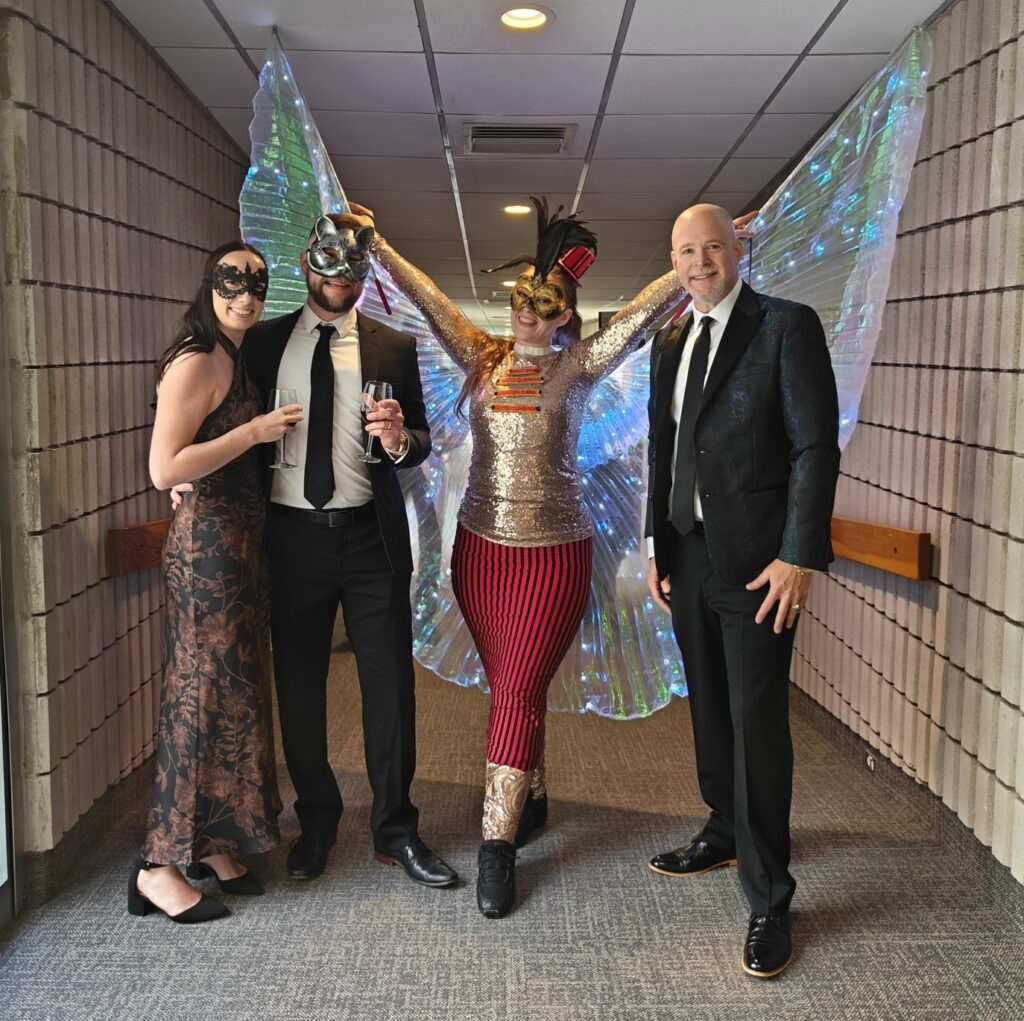
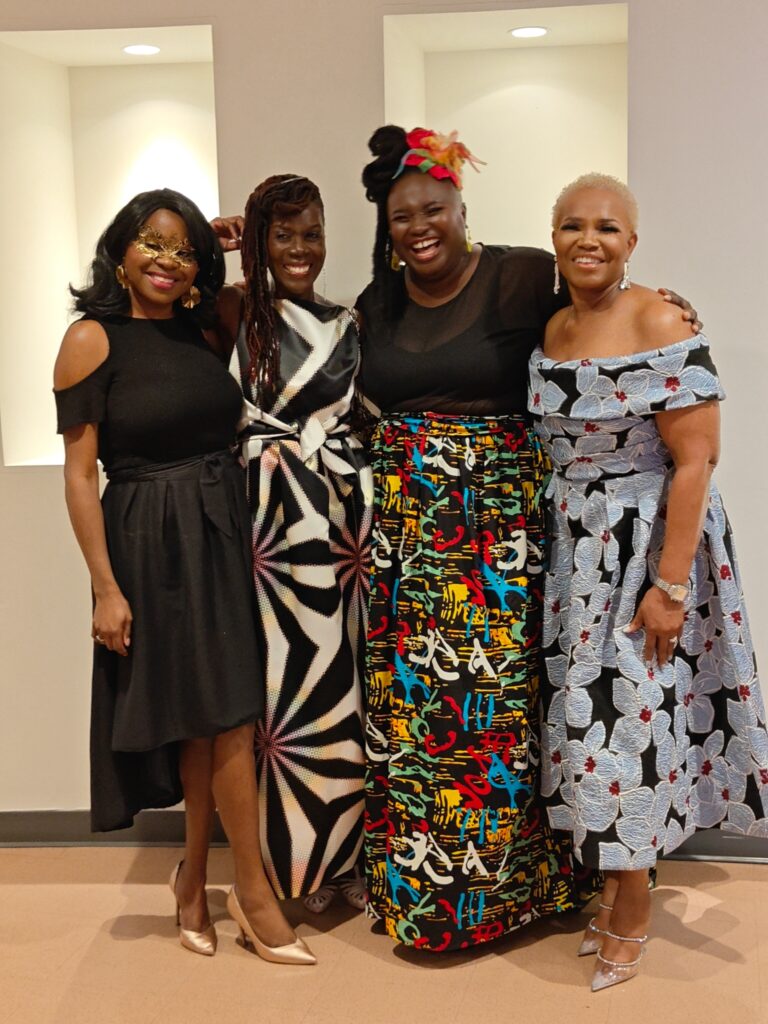
Dunham described her bouts of depression and the lows that follow periods of mania as being in a world devoid of colour: “All that’s left is shades of gray.”
While her mental health challenges have been difficult, Dunham counts herself lucky, for having support from family and friends, for the access she was able to get to help.
Other people with the same diagnosis are often less lucky, she explained. While the prevalence of bipolar I with the general population is less than 1%, amongst those experiencing homelessness, the prevalence is around 12%.
Further, around 20% of people with bipolar I die by suicide, Dunham stated.
This has led her to organize these annual fundraisers for CMHA — for their evening programs in particular.
The evening programs are particularly important, said Sue Phipps, CEO of CMHA. There is a dearth of programming after 5 p.m. for people struggling with mental health, and these hours of the day can be particularly difficult: going home (or not having a home to go to) on your own, with hours to fill by yourself.
At the time of publication, the amount of money raised by Masquerade for CMHA’s evening programs had not yet been released, but Dunham’s keynote address, telling her own story of mental health challenges and resilience, underlined the importance of mental health resources and support, as well as the impact of voicing personal experiences in destigmatizing chronic mental illness.

